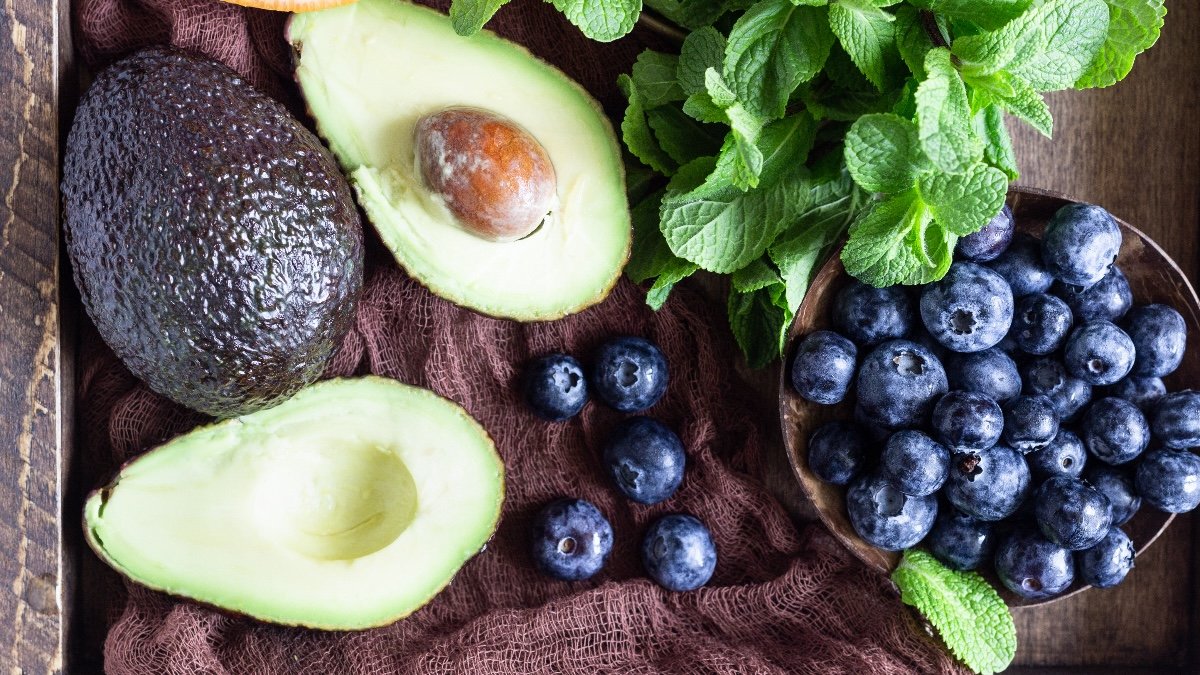Lifestyle
Fruits That Can Actually Heal Fatty Liver (and 1 to Skip!)

When it comes to our health, fads come and go (looking at you, TikTok!), but two pieces of wisdom that seem set in stone are that fruits are good for you and you can prevent, or even reverse, non-alcoholic fatty liver disease (NAFLD). Which begs the question: What are the best fruits for fatty liver? We tapped a top dietician to break down the superstar fruits shown to decrease inflammation and protect this marvel of an organ—as well share a few surprising foods to avoid.
What is non-alcoholic fatty liver disease (NAFLD)?
Fatty liver is a condition where excess fat accumulates in liver cells, often impairing the liver’s ability to process nutrients and cleanse the body of toxins effectively, explains dietician Erin Palinski-Wade, RD, CDCES, CPT, author of 2-Day Diabetes Diet: Diet Just 2 Days a Week and Dodge Type 2 Diabetes.
“This buildup of fat is commonly caused by obesity, insulin resistance and diets high in ultra-processed foods [from sodas to chips to sweets] and refined carbohydrates, such as those seen in the typical American diet,” she continues. If these health hazards seem hard to avoid, you’re right. No wonder more than 25 percent of Americans are estimated to have non-alcoholic fatty liver disease.
The good news is we can ease and even reverse fatty liver with simple dietary and lifestyle tweaks. In fact, a study in the International Journal of Clinical Practice showed that almost 45 percent of participants with NAFLD who adhered to a Mediterranean diet for one year, saw their condition improve dramatically and 20 percent enjoyed complete remission of fatty liver disease. That’s important because—along with veggies, olive oil, legumes and lean meats—the Mediterranean diet is chock full of fruit.
Why fruits can help prevent and reverse fatty liver
First thing’s first: If fruit is so good for us, why might people with fatty liver have misgivings about it? “For anyone dealing with this condition, it’s easy to worry that eating fruit means taking in ‘too much sugar,’” notes Palinski-Wade. “But not all sugars are created equal. The natural sugars found in fruit come packaged with fiber, water and antioxidants, which help slow digestion and prevent the rapid blood sugar spikes you’d see with processed sweets.”
In fact, enjoying fruit as part of a balanced diet supports a healthy metabolism, she adds. Her one cautionary note: “Consuming too much fruit—more than four servings per day—might worsen fatty liver in some people. But moderate intake typically provides benefits, as fruit fibers and phytonutrients calm inflammation throughout the body, including the liver.”
4 of the best fruits for fatty liver
Without further ado, Palinski-Wade shares the best fruits to help dial down inflammation and help restore our liver to the pink of health:
Avocado
The mighty green gem is proven to dial down cholesterol levels, which is especially important for liver health. “Lowering cholesterol can help reduce liver fat, curb inflammation and potentially lessen the risk of liver fibrosis [scar tissue] as well as progression to more serious liver damage,” she explains.
What’s more, avocados may also play a role in blood sugar management, she adds. “In a study of over 6,000 adult men and women in the Hispanic community, researchers found regular avocado intake among those with prediabetes is associated with a 31 percent reduction in risk of developing diabetes.” And since excess blood sugar can lead to fat build-up in the liver, this is welcome news indeed. To reap the most benefits, aim to eat about half an avocado per day.
Grapefruit
Research shows that compounds in grapefruit—like naringin and naringenin—contain antioxidant and anti-inflammatory properties that help reduce liver inflammation, improve fat metabolism and protect liver cells from damage.
“One study, in fact, found that naringenin can increase the liver’s breakdown of fatty acids and improve insulin sensitivity, which may benefit conditions like fatty liver disease,” confirms Palinski-Wade. Consider eating about half a grapefruit with your breakfast daily.
Blueberries
These antioxidant-rich rockstars are rich in plant compounds called polyphenols that support liver function by reducing oxidative stress and preventing further liver damage. Just sprinkle a few of the delicious berries in your smoothies or on your oatmeal, to tap their many health benefits.
Apples
These ruby-hued “fiber bombs” are brimming with anti-inflammatory compounds, which help support the natural detoxification processes of the liver and improve overall metabolism, she reveals.
Are there any fruits to avoid?
In a word (or two): not really. “While there aren’t any specific fruits to avoid when it comes to liver health, in sensitive individuals, having a maximum of four servings per day is typically recommended to prevent a negative impact from the natural sugars found in fruit,” Palinsk-Wade reiterates.
That said, there are a few stealthy “fruit wannabes” masquerading as healthy that you should try to sidestep: “Due to their sugar content, it’s best to limit dried fruit with added sugars, fruit juices with added sugars or processed snacks with ‘some’ fruit in the ingredient list,” she advises.
More stories on liver health:
The ‘Green’ Diet That Reverses Fatty Liver—And Helps You Lose Weight 8x Faster
5 Signs of Fatty Liver Disease That Show Up on Your Face, From Redness to Darkened Skin
Doctors Reveal the Best Fatty Liver Supplements, Including an Amazonian Fruit Making Headlines
This content is not a substitute for professional medical advice or diagnosis. Always consult your physician before pursuing any treatment plan.
